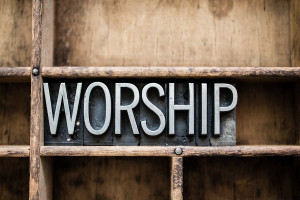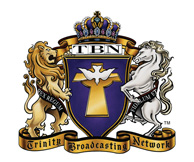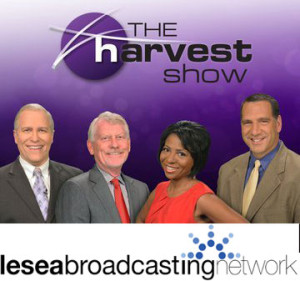What We Believe about Worship
(This is from a sermon given by Dr. Ron White, President of Emmanuel College, for Alpha Weekend, on Friday, August 28, 2015)
Worship. How do you define it? What is it? Why worship in the first place? Many of you ask these questions, and lots of other questions about worship as well, so let’s see if we can find some answers.
Think of the most important person you’ve ever met. Was it the governor of your state? A famous athlete? A well-known author? A famous entertainer, perhaps? When you encounter someone the people of the world consider important, there is often a sense of awe and wonder, isn’t there?
When I was nine years old, I went on a field trip to the state capitol, and while there, our class met the governor of our state. I still remember to this day being ushered into the governor’s office. It was huge. There were lots of people who served at his beck and call.
And there we were, a bunch of elementary school kids, shaking hands with the governor. There was a sense of awe and wonder, almost reverence for the man and his office. I’ve heard others talk about meeting famous people. They spoke in hushed tones as they described the meeting, and you sensed the awe and wonder they felt in the presence of persons with fame and power. This seems to be a universal human reaction. It’s like meeting royalty.
Worship is like that, but the royalty we encounter in worship is God Almighty, maker of heaven and earth, creator of every living thing. Think about being ushered into God’s presence, seeing him high and lifted up, sensing his power and remarkable presence. The prophet Isaiah had this exact experience.
He describes this way:
I saw the Lord sitting on a very high throne. His long robe filled the Temple. Heavenly creatures of fire stood above him. Each creature had six wings: It used two wings to cover its face, two wings to cover its feet, and two wings for flying. Each creature was calling to the others: “Holy, holy, holy is the LORD All-Powerful. His glory fills the whole earth.” Their calling caused the frame around the door to shake, as the Temple filled with smoke.
Loud noises, shaking and quaking, smoke everywhere. Sounds like a movie or a concert. Do you sense the awe and wonder, the indescribable scene, the high emotions? Worship is like that. Look at Isaiah’s response:
I said, “Oh, no! I will be destroyed. I am not pure, and I live among people who are not pure, but I have seen the King, the LORD All-Powerful.” [Isaiah 6:1-5 NCV]
Do you feel Isaiah’s sense of inadequacy? If we stop to think about who God is and what we are doing in worship, actually coming into his presence, we can feel inadequate and unworthy of his attention. If we don’t stop and think about what we are doing in worship, we run the risk of going through the motions of worship without actually experiencing worship.
So, stop and think, in worship I’m entering into his presence, the presence of Almighty God. I’m like an insect in his presence, small and frail compared to his majesty and power. I should quake with awe and wonder, exhilaration and praise.
Many verses in the Bible describe the experience of worship. Here are a few.
Praise the LORD, you angels; praise the LORD’s glory and power. [Psalm 89:8]
Happy are the people who know how to praise you. LORD, let them live in the light of your presence. In your name they rejoice and continually praise your goodness. [Psalms 89:15-16 NCV]
Because of your unfailing love, I can enter your house; I will worship at your Temple with deepest awe. [Psalms 5:7 NLT]
These verses establish that God is worthy of our worship and praise, but how do we worship? Is there a definition of the form worship should take? The simple answer, No, there is not. Throughout the Bible you find descriptions of worship, but I cannot find where it proscribes a specific, definitive, one and only form of worship. That’s significant, because for something as important as worship, you would think if God had a specific form in mind, he would have laid it out there for all to see. My opinion is that form or style of worship comes more from culture than from God. Form is important, but only as a vehicle transporting us into God’s presence. If the form can assist someone in giving worship and praise with a sense of awe and wonder and deep appreciation, then it’s probably okay.
I think the reason God did not endorse a specific style is so we wouldn’t deify the form. Here’s what I mean. He doesn’t want us to make a form of worship more important than the act of worship. But, of course, through the ages of Christianity, we have done just that. We have created forms of worship we often equate with God himself. In our minds they are the same, but of course, form cannot equal God. What matters is the condition of our hearts, our emotions, our minds when we worship. Form is secondary. God is primary. Form always follows heart, not the other way around.
Our focus is God and our adoration of him. The form is simply a vehicle of expression. Nothing less, nothing more. The form of worship is not sacred. Form is not divine. Form is not God. Only God is God. And he deserves our heart-felt love and appreciation. Worship from our hearts, from the seat of our emotions, from the essence of who we are is what he deserves.
Let’s see how the Bible describes worship. There’s a lot about body posture. For example, here are a few verses that describe different body postures in worship.
Come, let us worship and bow down. Let us kneel before the Lord our maker, for he is our God. [Ps 95:6]
Ezra stood on the platform in full view of all the people. When they saw him open the book, they all rose to their feet. Then Ezra praised the LORD, the great God, and all the people chanted, “Amen! Amen!” as they lifted their hands. Then they bowed down and worshiped the LORD with their faces to the ground. [Nehemiah 8:5-6 NLT]
Standing, bowing and kneeling seem to be forms of worship across all religions and especially Christian denominations. This seems to be a universal sign of submission. When we stand and bow or kneel, we acknowledge our position as subjects or servants of God Almighty. Also, notice here in this passage the lifting of hands in worship. It seems to be a natural response, like a child reaching up to his father for help, like surrender to a greater power, but lifting hands is considered out of order in some Christian groups.
Yet other verses support the lifting of hands:
Accept my prayer as incense offered to you, and my upraised hands as an evening offering. [Ps 141:2 NLT]
In every place of worship, I want men to pray with holy hands lifted up to God, free from anger and controversy. [1 Tim 2:8 NLT]
Don’t think it odd when people bow, prostrate themselves, kneel, lift their hands. All of these are in the Bible and can be used in worship.
Music and singing is another common thread in forms of worship across many denominations. There are dozens of verses about singing in worship, playing musical instruments in worship, singing in groups, in choirs, by yourself.
Here are a few:
Worship the LORD with gladness. Come before him, singing with joy. [Psalms 100:2 NLT]
Sing psalms and hymns and spiritual songs to God with thankful hearts. [Colossians 3:16 NLT]
Praise him with a blast of the ram’s horn; praise him with the lyre and harp! Praise him with the tambourine and dancing; praise him with strings and flutes! Praise him with a clash of cymbals; praise him with loud clanging cymbals. [Psalms 150:3-5 NLT]
As you can see from the previous verse, worship can be loud, not just with instruments, but with voices, too. Look at these two verses.
The whole multitude of the disciples began to rejoice and praise God with a loud voice for all the mighty works which they had seen. [Luke 19:37 ASV]
Shout with joy to the LORD, all the earth! [Psalms 100:1 NLT]
Loud worship really bothers people whose culture of worship has always been quiet. But it is Biblical and legitimate. Of course, worship can be quiet as shown in the next two verses.
But the LORD is in his holy Temple. Let all the earth be silent before him. [Habakkuk 2:20 NLT]
Be still, and know that I am God: I will be exalted among the nations, I will be exalted in the earth. [Psalm 46:10 ASV]
I could go on and on because the Bible is full of verses about worship, but despite the many verses and the immense variety of worship forms in the Bible, as humans, we tend to adopt the forms that fit our culture and then deify them as if no other form is legitimate. But from the many descriptions in the Bible about worship, what you notice is the great variety and the lack of uniformity. Form in worship is not nearly as important as the heart in worship. Remember, form follows the heart, and not the other way around.
So our challenge is how to worship from the heart regardless of the form. Think of the culture you grew up in. What form of worship did they use each Sunday? Many times our cultural heritage determines what we think of as the best form of worship. If you grew up Baptist, then singing and praying were staples in worship, but lifting of hands? Probably not. If you grew up Catholic, there were prayers and kneeling, much formality and liturgy, but lots of musical instruments? Probably not. If you grew up Pentecostal, there were lots of musical instruments and lifting of hands, but formality and liturgy? Probably not.
You see, your cultural heritage often determines your preferred form of worship, but please understand, your cultural heritage is not the only way to worship. Will we be more comfortable in our preferred, cultural form? Certainly. But should we be able to engage in worship when the form is NOT what I’m used to? Yes. Absolutely. Because form follows heart, not the other way around. A true mark of spiritual maturity is the ability to worship, truly worship, regardless of the form. We should be adaptable to try different forms of worship. We should also resist the temptation to criticize someone’s form of worship.
The form you will see mostly on this campus is the modern style because it seems that younger people enjoy the modern style more. That means that there are plenty of people here who may not be as comfortable with that form because their cultural heritage is of a different form. Do your best to engage in worship rather than worry and fret over the form.
Although modern worship will be most prevalent, you will see different forms here. In fact, in Tuesday’s convocation after Alpha Weekend, we had traditional or formal style. This semester we will have other opportunities to experience different styles of worship. Be adaptable. Focus on God, not the form.
My cultural heritage was Pentecostal Holiness, the denomination that sponsors Emmanuel College. You hear us refer to it as the IPHC or the International Pentecostal Holiness Church. That’s a long name which is why we simply abbreviate it to IPHC. Now, because we are IPHC, you may witness some distinctive Pentecostal experiences in worship services. I encourage you to not rush to judgement, but to keep an open mind, and study what the scriptures say.
From the book of Acts, we read:
When the day of Pentecost came, they were all together in one place. Suddenly a sound like the blowing of a violent wind came from heaven and filled the whole house where they were sitting.
They saw what seemed to be tongues of fire that separated and came to rest on each of them. All of them were filled with the Holy Spirit and began to speak in other tongues as the Spirit enabled them. [Acts 2:1-4 NIV]
This passage describes what is known as Pentecostal experience. We call it Pentecost because it happened on Pentecost Sunday, which is the day that is 50 days, hence Penta, after the Jewish Passover. Because it happened on Pentecost Sunday, speaking in tongues and other gifts of the Holy Spirit are labeled as Pentecostal phenomena or experiences. That’s probably an unfortunate label, because these experiences we call Pentecostal are actually Holy Spirit experiences. They are the work of God the Holy Spirit.
Let’s see what else the Bible says about it.
Now to each one the manifestation of the Spirit is given for the common good. To one there is given through the Spirit a message of wisdom, to another a message of knowledge by means of the same Spirit, to another faith by the same Spirit, to another gifts of healing by that one Spirit, to another miraculous powers, to another prophecy, to another distinguishing between spirits, to another speaking in different kinds of tongues, and to still another the interpretation of tongues. All these are the work of one and the same Spirit, and he distributes them to each one, just as he determines. [1 Corinthians 12:7-11 NIV]
This passage indicates that the Holy Spirit is at work in the church today, and one way he works is to give Holy Spirit-inspired abilities to Christians to help them do the work of the church. These are called the Gifts of the Holy Spirit. Look at thelist. Most churches agree that the column on the left, things like gifts of wisdom, faith or miracles are good and desirable, but when it comes to the gifts in the second column, things like prophecy, tongues, and interpretation of tongues, there is a lot of disagreement about what is acceptable and what is not. Interestingly, in recent years, we have seen Baptist and Methodist groups move closer to the classical Pentecostal posit
Again, we don’t have time to dig deep here, but let me explain our position briefly. You may hear someone with the gift of prophecy speak what’s called a prophetic word. Some of our guest ministers may do this. They may speak to someone directly about something God is planning to do in their future. The person giving the prophecy is being influenced by the Holy Spirit to speak the message. They have no prior knowledge or inside information about the person. It is the Holy Spirit speaking through them to communicate directly to someone.This often builds the person up and gives them confidence to move in a certain direction or perform a certain task or ministry in life. Why should we be amazed that God the Holy
Spirit would speak through humans and use their voices to tell us things about the present and the future that are for our benefit?
You may also hear someone speak in tongues. This doesn’t happen often and it is not something to fear or worry about. It is an experience clearly articulated in the Bible that the early church had no problem with. As with anything, Satan tries to counterfeit good things and use them to confuse us.The Gifts of the Holy Spirit is one area where Satan has stirred up much confusion, not just in our day but in the early church as well. In the New Testament, the Corinthian church had concerns over the gifts of the Spirit. Read chapters 12-14 of the first book to the Corinthians. It’s fascinating. Sounds like the church in the 20th and 21st Centuries.
Here are a few excerpts:
 I would like every one of you to speak in tongues, but I would rather have you prophesy. The one who prophesies is greater than the one who speaks in tongues, unless someone interprets, so that the church may be edified [or enlightened and helped].For this reason the one who speaks in a tongue should pray that they may interpret what they say. . . I thank God that I speak in tongues more than all of you. But in the church I would rather speak five intelligible words to instruct others than ten thousand words in a tongue.” [1 Corinthians 14:5, 13, 18-19 NIV]
I would like every one of you to speak in tongues, but I would rather have you prophesy. The one who prophesies is greater than the one who speaks in tongues, unless someone interprets, so that the church may be edified [or enlightened and helped].For this reason the one who speaks in a tongue should pray that they may interpret what they say. . . I thank God that I speak in tongues more than all of you. But in the church I would rather speak five intelligible words to instruct others than ten thousand words in a tongue.” [1 Corinthians 14:5, 13, 18-19 NIV]
These chapters in 1 Corinthians deal with the issue of tongues and abuses by some who are not being used by the Holy Spirit. In other words, counterfeits. Here’s the take-away:
The important thing is to understand what God is trying to tell us when these gifts are used in a worship service.
I don’t know why he chose this method, but he did. One thing is for sure. When someone starts speaking in tongues, everything stops. It gets your attention. It’s sort of logical when you think of it that way. It’s like God saying, “Listen up. I’ve got something to say.” Then, we listen very carefully to the interpretation and take action as a result. So, if any of these things happen, don’t be alarmed. Watch. Observe. Pay attention, but don’t be afraid.
Ok. So let’s wrap this up. Worship is not about form, it’s about heart, emotions, and mind engaged in the awe and wonder of God Almighty. God is amazing and he’s done amazing things for the human race and for us personally. Regardless of the form, when we come together to worship, turn your heart and mind toward God. Enjoy who he is and adore him. Your personal response to God is what matters in a way that expresses your awe, wonder, appreciation, and praise.
I’ll ask Dr. Tracy Reynolds and a couple of students he’s asked to join him to come to the stage right now for our panel discussion. Again, my story. The church I grew up in was country Gospel. Worship was noisy and informal. When I attended Emmanuel, I was introduced to quiet and formal styles of worship with traditional hymns which is what did here then. I’ve led modern worship and I’ve served Baptist and Methodist churches that were traditional. I’ve come to appreciate all the styles, and I can worship with any style, because the form of worship follows my heart of worship.










Thank you for this sermon! This explains worship better than I could.
With your permission I would like to use this at our church on a Sunday when I have the opportunity to preach. Of course I would want to change some specific details/examples.
Thank you again for your clarity!